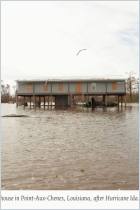
Retreat from a Rising Sea
Hard Choices in an Age of Climate Change
Read or listen offline
Amazon KindleRecommendation
The “retreat” in this book’s title isn’t a description, but a prediction. Orrin H. Pilkey, Linda Pilkey-Jarvis and Keith C. Pilkey – co-authors of previous environmental books – argue that rising sea levels will doom coastal development. They say that in many areas beach renourishment and seawall construction will prove expensive and futile. Decades from now, they predict, people will be forced to abandon Miami, New Orleans, Norfolk and other coastal cities. The authors criticize the US government’s flood insurance program for encouraging building in low-lying areas instead of strategizing movement away from the coasts. They also warn of the danger of locating nuclear plants near the shore. Climate change skeptics may not appreciate the Pilkeys’ fatalistic mindset. However, they also present a compelling overview of a potentially devastating problem and of what government is and isn’t doing to mitigate its risks. While always politically neutral, getAbstract recommends their insightful, well-researched report to investors, city planners, policy makers and anyone living near the sea.
Summary
About the Authors
Orrin H. Pilkey is James B. Duke professor emeritus at Duke University. Linda Pilkey-Jarvis is a geologist and Keith Pilkey is an administrative law judge. The three have collaborated on previous environmental books.


















Comment on this summary or Start Discussion